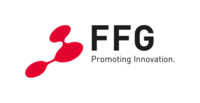Socio-technical solution for a healthy and climate-competent life of nursing relatives in caring communities.
Background
Different groups of persons are affected in different ways by the impacts of climate change. Older people in particular are more strongly affected than others, and this problem will only get worse with time. It is associated with higher care efforts required on the part of nursing relatives and care networks in general. The fact that the majority of nursing relatives are of an advanced age themselves (55 to 65) aggravates the situation even further. Studies investigating the burdens that nursing relatives are exposed to emphasise their need for more support. Digital technologies have the power to improve their situation, increase their participation in social life, and counteract health problems.
Project Content
The concept of “Multisolving” has emerged from the commitment to fight climate change. The Multisolving approach promotes cooperations across sectors with the goal of addressing several problems at once through a joint effort. We pursue a similar path in the project at hand. Our plan is to increase the health-related and social resilience of nursing relatives and to make a contribution to climate protection at the same time (e.g., climate-friendly nutrition, active mobility). Moreover, we focus not only on the individual but on the entire environment/ecosystem. Specifically, we use iterative methods of co-creation to develop a socio-technical solution approach for nursing relatives that facilitates healthy and climate-competent living. The approach aims to seamlessly integrate with digital technologies already used in everyday life, harness the benefits of 'Caring Communities', and enable social participation.
Objective and Research Questions
The project’s main objective is to use socio-technical solutions to transform the everyday lives of nursing relatives. It should result in more social participation as well as healthy and climate-competent ways of life within digital and analogue caring communities. To this end, it is necessary to answer the following research questions:
- Which obstacles do nursing relatives face in their everyday lives? Which factors make it difficult for them to participate in social activities and to lead a healthy and climate-competent life (especially in terms of nutrition and mobility)?
- Which digital aids are nursing relatives using already? What are good practice examples, and where is the use of digital tools helpful? Where and when is it reasonable to use digital tools, and when is it not?
- How can socio-technical solutions for nursing relatives be integrated in urban and regional planning? How can they help to expand offers of professional care organisations? How can healthy and climate-competent practices be institutionalised that strengthen social participation at the same time?
- To what extent do gender differences/aspects play a role in all the aforementioned points?
Methods
The 3WINpA project not only focuses on the analyses of the current situation but also is intended to bring about change. The aim is to use socio-technical solutions to make it easier for nursing relatives to lead healthy and climate-competent lives. Towards this goal, we undergo a Design Thinking process that is divided into several partial steps. In a first step, we identify key competencies for healthy and climate-competent living and work out how digital solutions can help us attain them. To do this, we carry out literature reviews and surveys among the target group, and we use the insights derived as the basis for our theoretical/conceptual framework model. In the next step, we team up with the affected persons, interest groups from urban and regional development (co-creation), and climate research experts to come up with solutions to the challenges that nursing relatives face in their everyday lives. Subsequently, we develop interactional and functional concepts for a socio-technical solution together with the target group. Finally, we create a (low-fi) prototype and test it (using mock-ups).
Results
Previous approaches to assisting caregivers with digital technologies have predominantly focused on addressing individual challenges. In contrast, our project places significant emphasis on environmental factors, encompassing caregiving, housing, and overall living conditions. We prioritize involving affected individuals and interest groups in the development of new digital solutions through participatory development. By forming partnerships with experts from diverse disciplines, we aim to comprehensively examine our subject matter from various perspectives. Beyond enhancing social participation, our initiative also advocates for improved health and environmentally sustainable lifestyles. This broad approach enables us to address multiple areas of concern simultaneously.
You want to know more? Feel free to ask!
Center for Digital Health and Social Innovation
- GÖG Gesundheit Österreich GmbH
- Geriatrische Gesundheitszentren der Stadt Graz
- Karl Landsteiner Privatuniversität für Gesundheitswissenschaften


